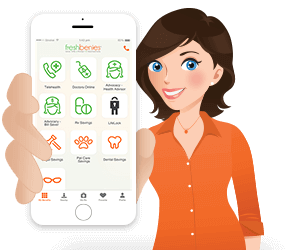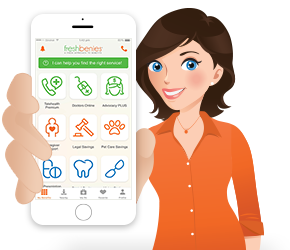Heartburn or Heart Attack?
Today's blog is a guest post by Dr. Ken Davidson, M.D. of eDocAmerica.
Around six million people go to the emergency department each year with chest pain. In many cases, the determination has to be made as to whether the chest pain is due to a relatively minor condition or to a life-threatening process. Often this means making the distinction between heartburn (a gastrointestinal condition) and angina or heart attack (heart-related conditions), since these can all present with similar symptoms.
Heartburn, also called acid indigestion, is experienced by as many as 60 million Americans at least once a month. Heartburn is the most common symptom of gastroesophageal reflux (GERD), a disorder in which stomach acid "backs up" into the esophagus, the tube-like structure that connects the mouth to the stomach. Symptoms result when harsh stomach juices come in contact with delicate lining of the esophagus. The most common features of heartburn are:
- A painful, burning sensation just below the breastbone or ribs
- Pain that develops after eating or upon reclining
- Improvement in symptoms when taking antacids or "acid blockers"
- A sour or bitter taste in the mouth and belching
Angina is a symptom of coronary heart disease that occurs when the heart muscle is not being supplied with enough oxygen-carrying blood. It is usually described as a pressure or squeezing discomfort in the chest. This discomfort can also be felt in the arms (usually left), neck, or jaw. A heart attack (myocardial infarction) occurs when blood flow to the heart is interrupted due to complete blockage of a coronary artery. This results in death of heart muscle. The pain caused during a heart attack or from a severe heartburn episode is sometimes so similar that sophisticated equipment may be required to tell them apart. The following are symptoms typical for heart attack:
- Chest discomfort in the center of the chest that lasts for more than a few minutes, or goes away and comes back. The discomfort can feel like uncomfortable pressure, squeezing, fullness, or pain.
- Discomfort in other areas of the upper body including one or both arms, the back, neck, jaw, or stomach.
- Shortness of breath, often occurring along with chest discomfort.
- Other symptoms may include breaking out in a cold sweat, nausea, or light-headedness.
As with men, women's most common heart attack symptom is chest pain or discomfort. But instead of the classic chest discomfort women are somewhat more likely than men to experience certain "atypical" symptoms, particularly shortness of breath, nausea/vomiting, and back or jaw pain. An important distinguishing feature of coronary heart disease is that the discomfort often occurs with exertion or activity. To confound things, however, heart attack as well as heartburn may occur after eating. With severe chest pain, atypical symptoms suggestive of heart disease, or if chest pain is a new occurrence, it is best to leave the determination of the cause to the physician.

While a heart attack is a medical emergency, recurrent heartburn, particularly if associated with GERD is not entirely benign either. If left untreated, GERD can cause or contribute to a wide range of problems such as inflammation and ulcers of the esophagus (esophagitis). Some patients with esophagitis develop strictures (narrowing of the esophagus due to scar tissue) which can lead to problems swallowing food or pills. GERD can also contribute to asthma, pneumonia, hoarseness, chronic cough, abnormal functioning of larynx and dental problems. Medical attention should be sought if heartburn is associated with any of the following:
- Persistent heartburn after taking the full course of prescription or OTC medications (e.g. Prilosec, Tagamet, others)
- Severe hoarseness or wheezing
- Painful swallowing, especially with solid foods or pills
- Frequent nausea, vomiting or unanticipated weight loss
Heartburn occurring several times a week or for more than a year
If you have warning signs of a heart attack, do not try to decide for yourself what the problem is—seek immediate medical attention. A heart attack is an emergency. Call 9-1-1 if you think you (or someone else) may be having a heart attack. Prompt treatment of a heart attack can help prevent or limit lasting damage to the heart and can prevent sudden death. Remember that although both conditions make reference to the "heart", one is primarily a painful nuisance whereas the other represents a true medical emergency.
If you have any questions about the differences in heartburn and heart attacks and you're a freshbenies member, log into your app or portal and submit your question to a doctor!














